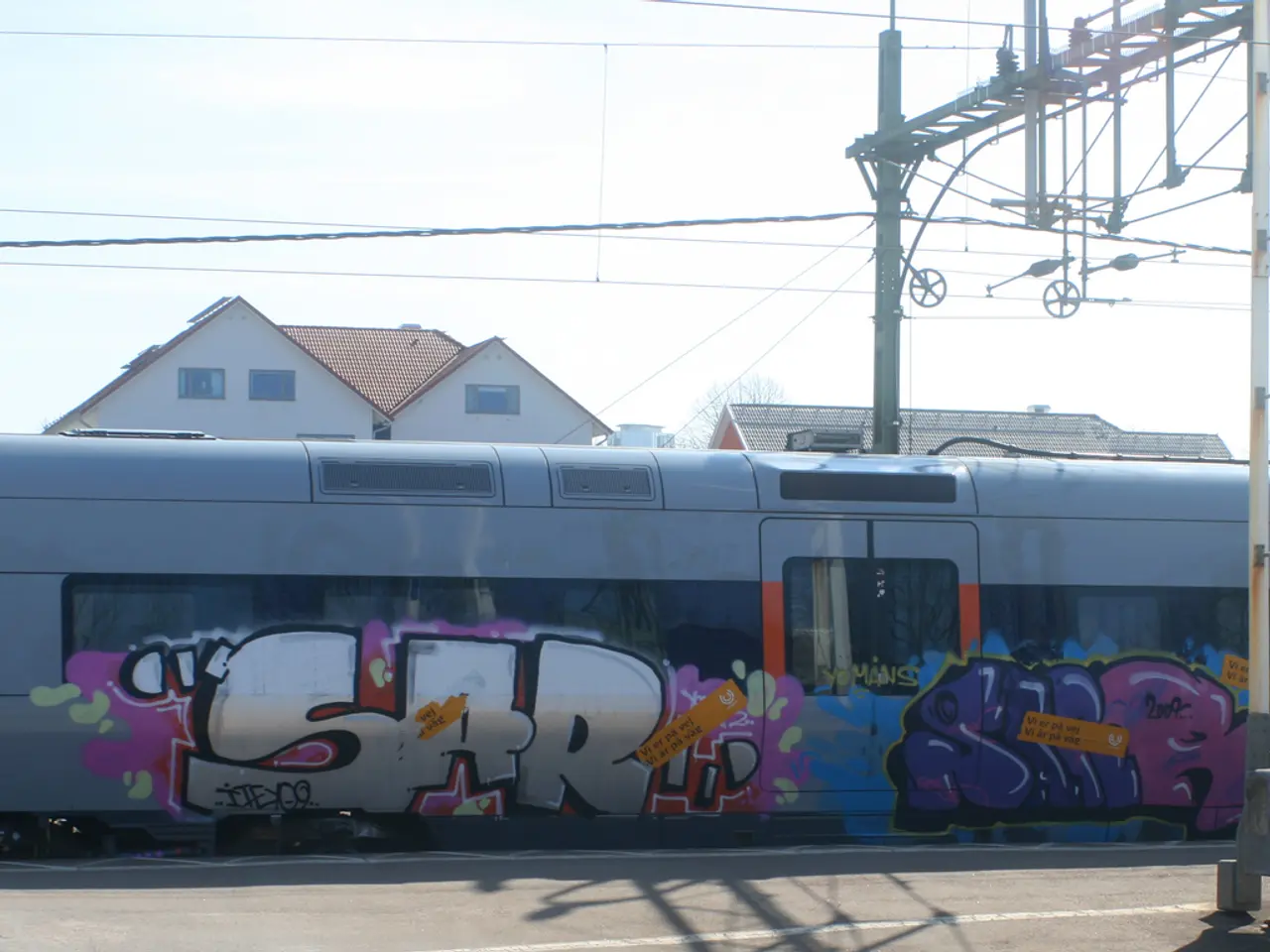Residents of Tultepec successfully remove elevated viaduct and Suburban Train station, following approval from federal authorities, urging repairs in 145 local homes.
The Tultepec section of the Mexico-AIFA Train work has been experiencing the greatest delay, causing concern among residents and commuters. The Suburban Train works, which aim to connect the metropolitan area with the Felipe Ángeles International Airport (AIFA), have faced numerous suspensions and delays due to their complexity and the crossing of inhabited zones.
These works have generated discontent among the affected neighbors, who have taken matters into their own hands by blocking the elevated Viaduct 2 and the Teyahualco station of the Suburban Train since March. The residents' primary concern is the alleged prioritization of the urban train line over their needs, affecting basic services and road safety.
Recent suspensions and neighborhood demands reflect the need for more integrated and community-sensitive management. The construction companies have been accused of prioritizing the urban train line at the expense of the people's needs.
The president, Claudia Sheinbaum, has intervened to ensure that the repairs and constructions related to the affected houses and infrastructure are resumed. The federal government has agreed to carry out the rehabilitation of the residents' properties, but has given them a one-month deadline to see progress. If there is no progress by the end of August, the residents have threatened to interrupt the transportation project towards the Felipe Ángeles International Airport (AIFA) once again.
The mass transit infrastructure is strategic for mobility and economic development in the metropolitan area. The Suburban Train is the first of its kind in the region, aiming to connect with the AIFA, and is considered an alternative to the saturation of the Benito Juarez International Airport by the federal government.
However, the execution of this mass transit infrastructure must balance technical factors with respect for the social environment. The National Housing Commission (Conavi) has recorded 145 damaged houses in the Teyahualco, 10 de junio, Lázaro Cárdenas, La Manzana, and Zacamole colonies. Of these, 55 need partial reconstruction, 29 partial rehabilitation, 12 minimum reconstruction, and 11 total reconstruction.
The authorities have pledged to take charge of repairing the houses and fulfilling the promises made. The repairs and constructions are expected to start in August. It is crucial for all parties involved to work together to ensure the successful completion of this project while addressing the concerns and needs of the affected residents.
As the situation continues to evolve, it is advisable to consult local government or transportation authority announcements for the most accurate and current updates on the Tultepec Suburban Train suspension status and housing repair efforts.
- The residents' concerns are not limited to transportation issues, as they also raise questions about the prioritization of the finance industry, with accusations that construction companies are prioritizing the urban train line over their needs.
- Amidst the delays in the transportation sector, the federal government's attention should also focus on the finance industry to ensure funds are allocated for priority housing repairs and rehabilitation, as agreed in the one-month deadline.




